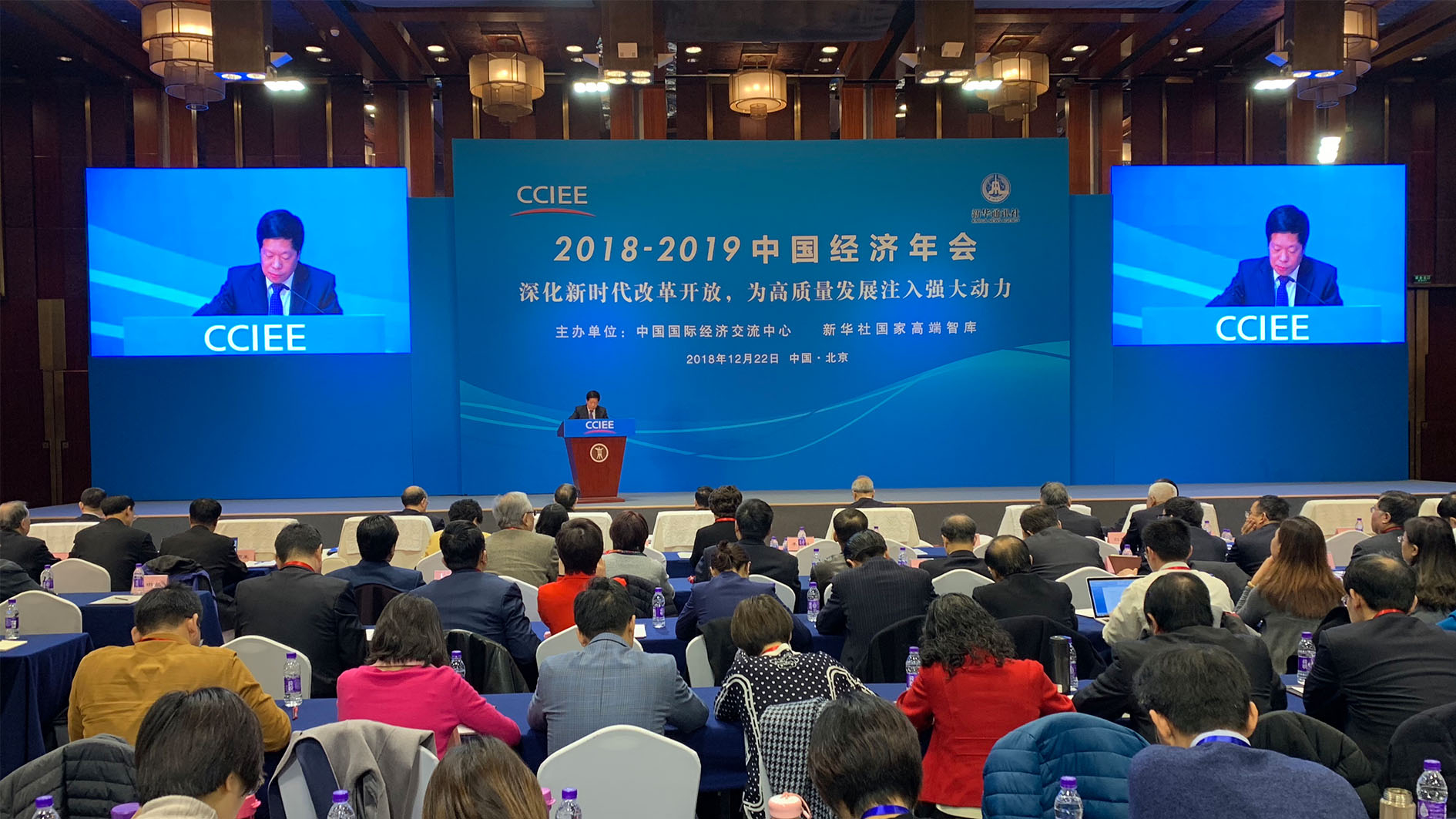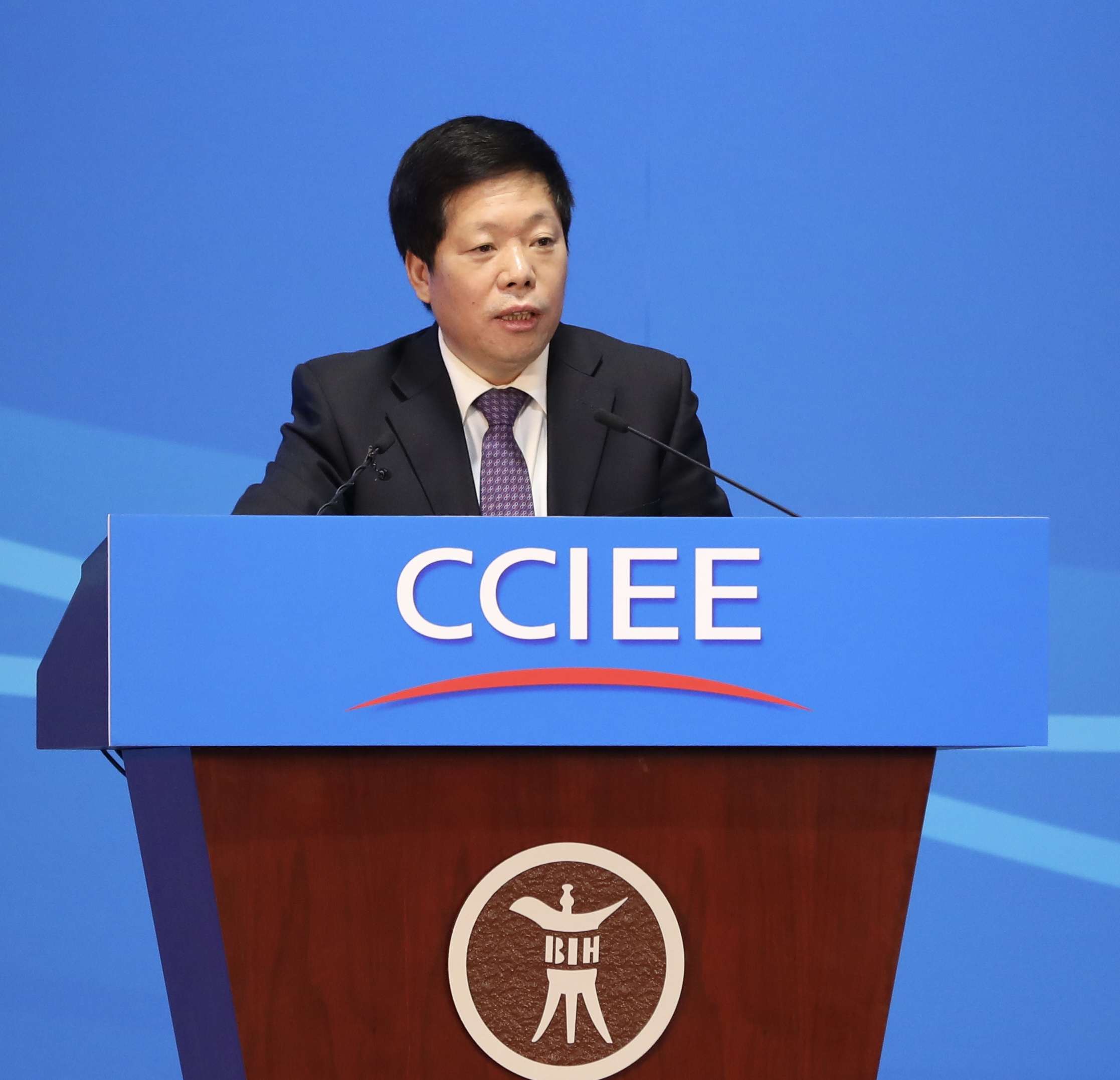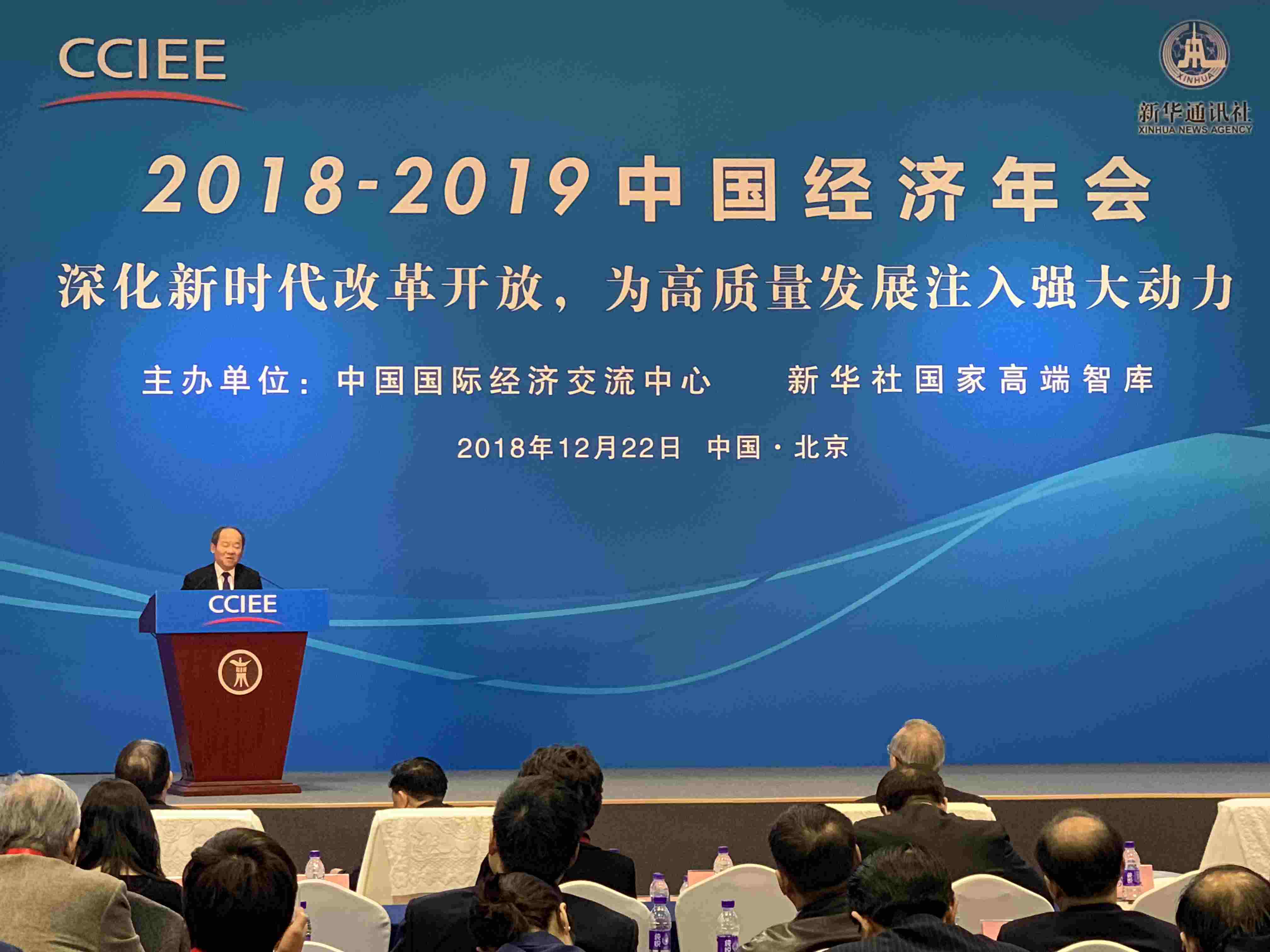
Economy
23:02, 22-Dec-2018
Policy insiders' take on China's Central Economic Work Conference
Updated
22:07, 25-Dec-2018
By Wang Mengzhen, An Kun
02:46

The maintenance of proactive fiscal and prudent monetary policies was among the key messages of China's just concluded Central Economic Work Conference. So, what do these messages mean and who are the beneficiaries? Officials from the main economic and financial regulators, as well as experts, gathered at an annual economic forum in Beijing this week to go over what is in store for China's economy in 2019.
For insiders, the central economic work conference defines the development stage of the Chinese economy amid increasing uncertainties.

Han Wenxiu, deputy director of Central Financial and Economic Affairs Commission, delivers a keynote speech at an annual economic gathering in Beijing, December 22, 2018. /CGTN Photo
Han Wenxiu, deputy director of Central Financial and Economic Affairs Commission, delivers a keynote speech at an annual economic gathering in Beijing, December 22, 2018. /CGTN Photo
"Whether China is still in the period of strategic opportunity and how to seize opportunities have become the big concern for decision-makers in the central committee. This economic work conference gives us the answer that China is still in the strategic development process and will be in such a critical period for a long time," said Han Wenxiu, deputy head of Central Financial and Economic Affairs Commission.
Cutting taxes and fees on a bigger scale, enhancing counter-cyclical adjustment, and substantially increasing the size of local government bonds are among the measures announced at the end of the conference. Insiders say they are meant to enlarge the role of macroeconomic regulation.

Ning Jizhe, vice-minister of the National Development and Reform Commission, delivers a keynote speech at an annual economic gathering in Beijing, December 22, 2018. /CGTN Photo
Ning Jizhe, vice-minister of the National Development and Reform Commission, delivers a keynote speech at an annual economic gathering in Beijing, December 22, 2018. /CGTN Photo
"Structural policies require us to deepen reforms in areas like the state-owned enterprises to create an environment of fair competition and encourage small and medium-sized enterprises to grow faster," said Ning Jizhe, vice-minister of the National Development and Reform Commission, a macroeconomic management governmental agency. "Meanwhile, we should enhance our social security policies as well."
One consensus regulators have reached is that innovation needs to be enhanced in an open manner.
"By relying more on improving the investment environment, we could attract more high-quality foreign investment. Meanwhile, we should enhance cooperation in the areas of smart manufacturing, the industrial Internet, cybersecurity and civil aviation under the Belt & Road Initiative," said Xin Guobin, Vice-minister of Industry and Information Technology.
"Now some of our key core technologies are facing some bottlenecks. It is painful in the short term, but this is not entirely a bad thing. It forces us to be determined and launch more independent innovation... But innovation is not closed – it needs to gradually push ahead, with openness," added Han Wenxiu.
Chinese regulators estimate the world's second-largest economy could realize its annual GDP growth target of 6.5 percent as the year 2018 is coming to an end, with the per capita GDP approaching 10,000 U.S. dollars. While acknowledging the pressure from an economic downturn and the complexities in the global economy, insiders attending the conference remained optimistic as it has given enough space for the country to fine-tune its economic policies in 2019.

SITEMAP
Copyright © 2018 CGTN. Beijing ICP prepared NO.16065310-3
Copyright © 2018 CGTN. Beijing ICP prepared NO.16065310-3